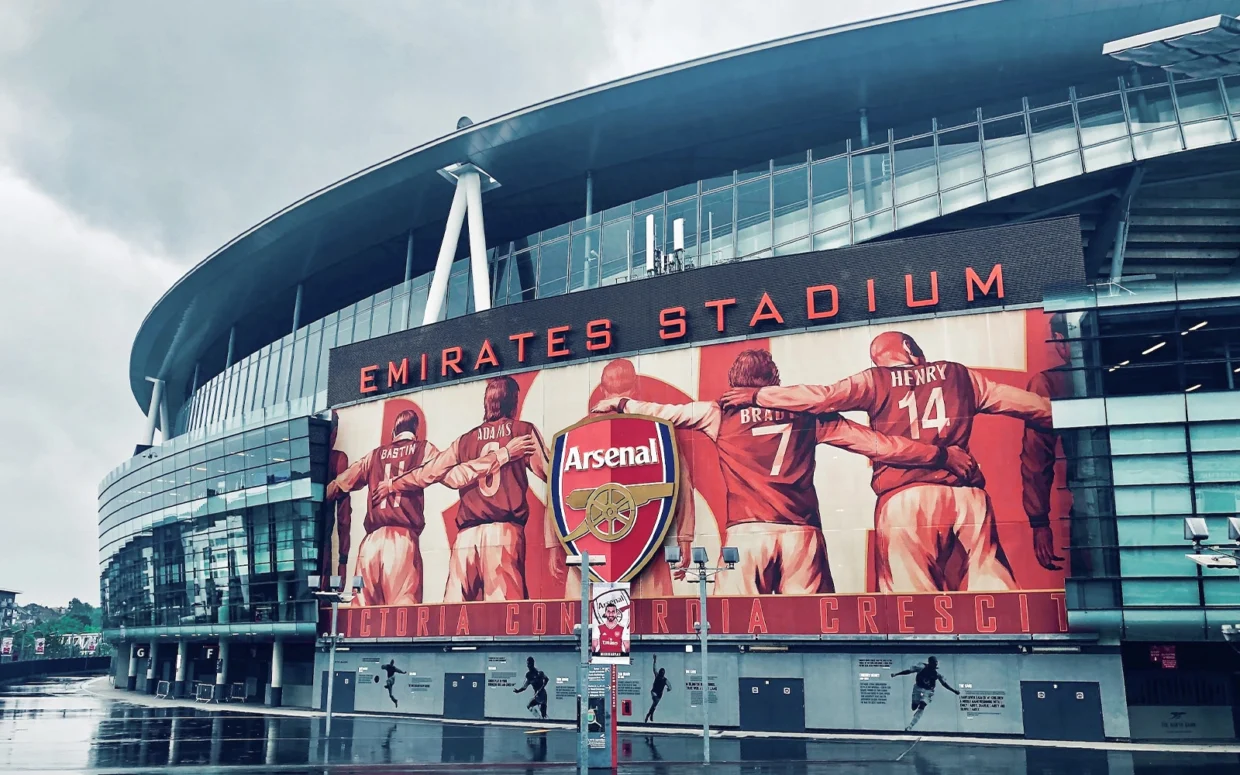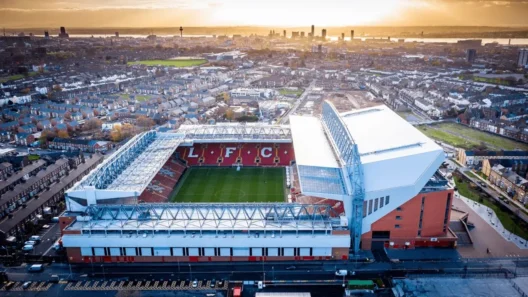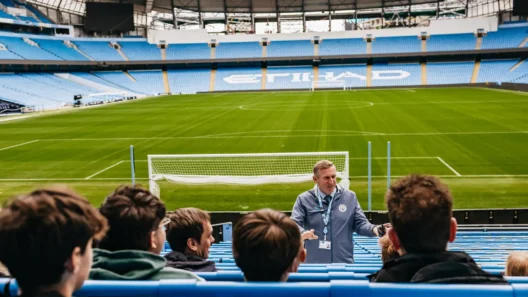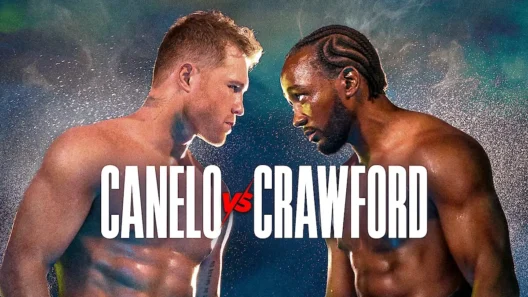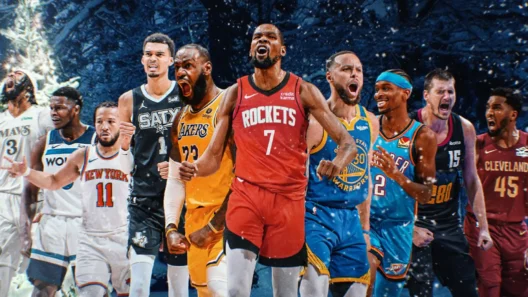Introduction: More Than a Club, A Global Phenomenon
To be a “Gooner” means joining more than just a football club; it’s about belonging to a worldwide family, united by passion, history, heartbreak, and hope. Arsenal Football Club is an iconic fusion of working-class grit and stunning, inventive football.
From humble beginnings in a London munitions factory to becoming a global sporting powerhouse, Arsenal has shaped its legend through style, innovation, and loyalty to its community.
This is the definitive fan’s manual—perfect for your first-ever pilgrimage to the Emirates Stadium or for cheering from halfway around the globe. We’ll cover everything: Arsenal’s origin story, modern ambitions, insider travel tips, stadium secrets, ticket strategies, and streaming hacks for global fans.
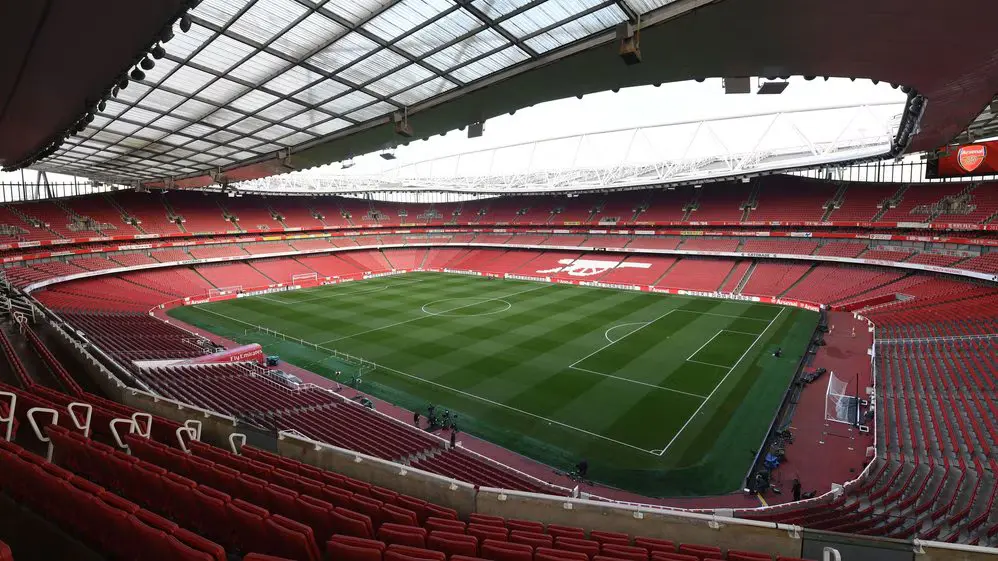
Part I: The Arsenal Legacy – Forged in Fire, Defined by Style
From Woolwich to Highbury: The Birth of a London Giant
Arsenal’s journey began in 1886, deep in the industrial heart of Woolwich, South East London. Founded by munitions workers from the Royal Arsenal armament factory and originally called Dial Square, this is where the nickname “The Gunners” was born.
Soon renamed Royal Arsenal, and later Woolwich Arsenal, they became the first southern club to join the Football League in 1893.
Financial struggles nearly sank the club in 1910, but salvation came with a bold move across London in 1913 to Highbury. This relocation placed Arsenal in the heart of North London and created the legendary North London Derby with Tottenham Hotspur—a rivalry fueled by Arsenal’s controversial promotion to the First Division in 1919.
Arsenal has remained in the top flight ever since, holding the record for the longest unbroken run in English football’s highest division.
The Trophy Cabinet & The Invincibles
Arsenal is the third-most successful English club:
- 13 league titles
- 14 FA Cups (record)
- 2 League Cups
- 17 FA Community Shields
- 2 European trophies: Inter-Cities Fairs Cup (1970), European Cup Winners’ Cup (1994)
But nothing tops The Invincibles. In the 2003–04 season, Arsenal went an entire Premier League campaign unbeaten—a 38-game feat unmatched in the modern era, and stretched their record to 49 games. This set the club’s gold standard for artistry and dominance.
Architects of Glory: The Men Who Built the Arsenal Way
- Herbert Chapman (1925–1934): The original innovator. Introduced tactical revolutions (the “WM” system), added shirt numbers, white sleeves to the kit, and led Arsenal to their first FA Cup and multiple league titles.
- Arsène Wenger (1996–2018): The club’s most transformative figure. He revolutionized training, nutrition, and football philosophy, delivering 3 Premier League titles (including The Invincibles), 7 FA Cups, and two league/cup doubles (1998, 2002).
Wenger’s Arsenal sparkled with icons:
- Dennis Bergkamp (Dutch elegance)
- Patrick Vieira (midfield steel)
- Tony Adams (defensive legend)
- Thierry Henry (record 228 goals, all-time Arsenal great)
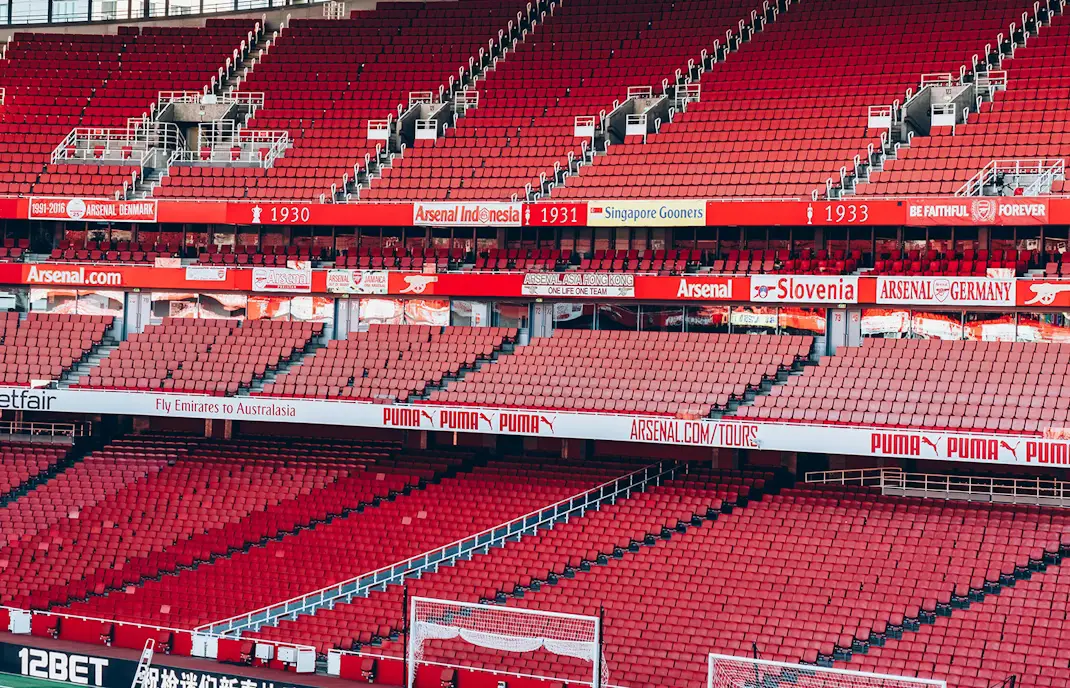
Part II: The Modern Gunners – The 2025/26 Campaign
At the Helm: The Mikel Arteta Revolution
Former captain Mikel Arteta returned in 2019, blending Arsenal’s traditional DNA with modern, Pep Guardiola-inspired tactics. With a youthful, dynamic squad and heavy investment, the 2025/26 season is the make-or-break moment for Arteta’s project.
Key staff:
- Albert Stuivenberg (experienced coach)
- Gabriel Heinze (new assistant)
Meet the 2025/26 Squad: A Blend of Youth and Experience
Arsenal’s squad now mixes academy-grown talents with world-class signings.
| Position | Squad No. | Player Name | Nationality | Age |
|---|---|---|---|---|
| Goalkeeper | 1 | David Raya | Spain | 29 |
| Goalkeeper | 13 | Kepa Arrizabalaga | Spain | 30 |
| Goalkeeper | 31 | Karl Hein | Estonia | 23 |
| Defender | 2 | William Saliba | France | 24 |
| Defender | 3 | Cristhian Mosquera | Spain | 21 |
| Defender | 4 | Ben White | England | 27 |
| Defender | 6 | Gabriel Magalhães | Brazil | 27 |
| Defender | 12 | Jurriën Timber | Netherlands | 24 |
| Defender | 15 | Jakub Kiwior | Poland | 25 |
| Defender | 17 | Oleksandr Zinchenko | Ukraine | 28 |
| Defender | 33 | Riccardo Calafiori | Italy | 23 |
| Defender | 49 | Myles Lewis-Skelly | England | 18 |
| Midfielder | 8 | Martin Ødegaard (C) | Norway | 26 |
| Midfielder | 16 | Christian Nørgaard | Denmark | 31 |
| Midfielder | 21 | Fábio Vieira | Portugal | 25 |
| Midfielder | 22 | Ethan Nwaneri | England | 18 |
| Midfielder | 23 | Mikel Merino | Spain | 29 |
| Midfielder | 28 | Albert Sambi Lokonga | Belgium | 25 |
| Midfielder | 36 | Martín Zubimendi | Spain | 26 |
| Midfielder | 41 | Declan Rice | England | 26 |
| Forward | 7 | Bukayo Saka | England | 23 |
| Forward | 9 | Gabriel Jesus | Brazil | 28 |
| Forward | 11 | Gabriel Martinelli | Brazil | 24 |
| Forward | 14 | Viktor Gyökeres | Sweden | 27 |
| Forward | 19 | Leandro Trossard | Belgium | 30 |
| Forward | 20 | Noni Madueke | England | 23 |
| Forward | 24 | Reiss Nelson | England | 25 |
| Forward | 29 | Kai Havertz | Germany | 26 |
Notable Transfers (Summer 2025):
- Viktor Gyökeres (Sporting Lisbon)
- Martín Zubimendi (Real Sociedad)
- Christian Nørgaard (Brentford)
- Cristhian Mosquera (Valencia)
- Noni Madueke & Kepa Arrizabalaga (Chelsea)
Homegrown gems like Ethan Nwaneri and Myles Lewis-Skelly are breaking through, carrying the Hale End legacy.
Season Ambitions & Transfer Strategy
The club’s recent “win-now” approach is reflected in big-money signings (Rice, Gyökeres, Zubimendi) and a willingness to offload fringe players for squad balance. A late move for Eberechi Eze after a Havertz injury shows Arsenal’s new reactive, ambitious transfer policy.
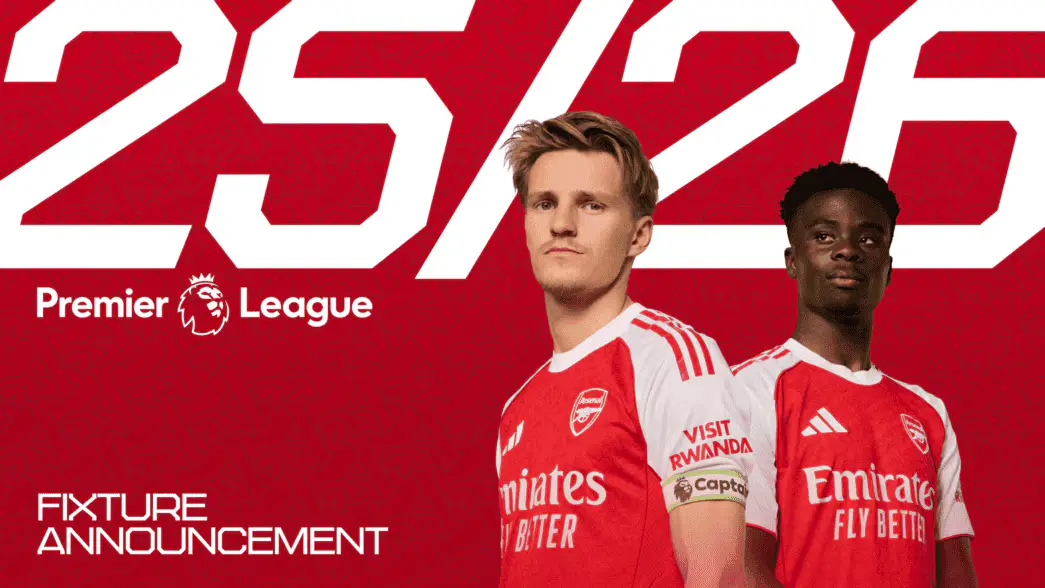
Part III: The Pilgrimage to N7 – Your London Travel Plan
Touching Down in London: Airport Cheat Sheet
- Heathrow (LHR):
- Heathrow Express: 15 min to Paddington (fastest, pricier)
- Elizabeth Line: Direct to central London
- Piccadilly Line (Tube): Cheapest, 50–60 min
- Gatwick (LGW):
- Gatwick Express: 30 min to Victoria
- Southern/Thameslink: Frequent, cost-effective
- Stansted (STN)/Luton (LTN):
- Stansted Express: 47 min to Liverpool St
- Luton: Shuttle + train to St Pancras
- London City (LCY): Most central, DLR direct
Use contactless cards/mobile pay for all public transport—simple and cheap!
Book Smart: Flights & Accommodation
Find Your Flight
Tips:
- Book early, be flexible, use incognito mode, try “mix & match” or self-transfer options, and set price alerts.
Where to Stay: The Best Areas for Gooners
- Islington / Angel / Highbury – Walk to Emirates, lively pubs, classic London vibe
- Finsbury Park – Budget-friendly, 15 min walk to stadium (Check Booking, Hotels.com, Expedia)
- King’s Cross / St Pancras – Super convenient, direct tube to stadium, tons of hotel options
Compare all hotel options:
Part IV: The Fortress – An Emirates Stadium Matchday Guide
Inside Emirates Stadium
Opened 2006, capacity 60,704, a modern fortress “Arsenalised” with murals, statues (Chapman, Henry, Bergkamp, Adams), and heritage displays.
Tip: Book a stadium tour for exclusive access to the players’ tunnel, changing rooms, press room, and the Arsenal Museum.
Getting to the Game
- Tube:
- Arsenal Station (Piccadilly Line): Closest, busy after matches
- Finsbury Park (Victoria/Piccadilly) & Highbury & Islington (Victoria/Overground): Larger stations, 10–12 min walk
- National Rail: Both Finsbury Park and Highbury & Islington
Note: Expect crowd management after the match—be patient, it’s well-organized!
How to Secure Arsenal Match Tickets
Official Route (Low chance, high reward):
- Buy Arsenal Red Membership (£36/year)
- Enter the member ballot (approx. 9% success rate)
- Use Ticket Exchange if you miss out (sold in seconds!)
Alternative Options:
- Join an official supporters’ club in your country
- Use verified secondary marketplaces: Ticketgum, Fanpass, Seatpin (expect higher prices)
- Official hospitality packages: guaranteed ticket + premium experience
Matchday Rituals: Best Pubs Near the Emirates
- The Tollington Arms – Legendary Gooner pub, Thai food, great vibe
- The Gunners Pub – Wall-to-wall Arsenal memorabilia
- The Twelve Pins – Lively, near Finsbury Park
- The Bank of Friendship – Classic local with a garden
(Away fans: Try The Coronet or The Hercules on Holloway Road)
The Matchday Atmosphere
Big games = big noise! European nights or derbies are deafening. Organized fan groups (Ashburton Army, Clock End) lead the chants, creating a unique buzz.
Part V: Watching from Afar – The Global Gooner’s TV Guide
Premier League Broadcasters by Country
| Region / Country | Main Broadcaster(s) |
|---|---|
| United States | NBC, Peacock, USA Network, Telemundo |
| Canada | FuboTV |
| UK | Sky Sports, TNT Sports, BBC (highlights) |
| Ireland | Sky, TNT, Premier Sports |
| Spain, Portugal | DAZN |
| France | Canal+ |
| Germany, Austria, Italy | Sky Sport |
| Netherlands, Scandinavia | Viaplay, Prime Video (select) |
| Australia | Stan Sport |
| Japan | U-Next |
| Africa, MENA | SuperSport, beIN Sports |
| Brazil, Argentina, etc. | ESPN |
Check your local broadcaster for the latest updates.
Streaming Arsenal Matches: The VPN Advantage
If you’re traveling, some streaming services are geo-blocked. A VPN is your secret weapon for watching Arsenal anywhere:
- Try NordVPN – 77% off
- Surfshark – 87% off
- ExpressVPN – 61% off
- CyberGhost VPN – 82% off
- PIA VPN – 85% off
Connect to your home country’s server, log in to your streaming platform, and enjoy the game, wherever you are!
Conclusion
Arsenal FC is more than a club; it’s a living story of triumph, artistry, and resilience. Whether you’re planning your first trip to North London or following every second from thousands of miles away, being a Gooner means being part of an ever-evolving football legacy.
This guide has armed you with everything you need—history, travel know-how, ticket strategies, matchday rituals, and tips for watching worldwide. From the spirit of The Invincibles to the hope of Arteta’s new era, Arsenal is a club that demands your attention, your passion, and maybe just a bit of your heart.
Ready to make your own Arsenal memories? Start planning your Gooner journey now!








